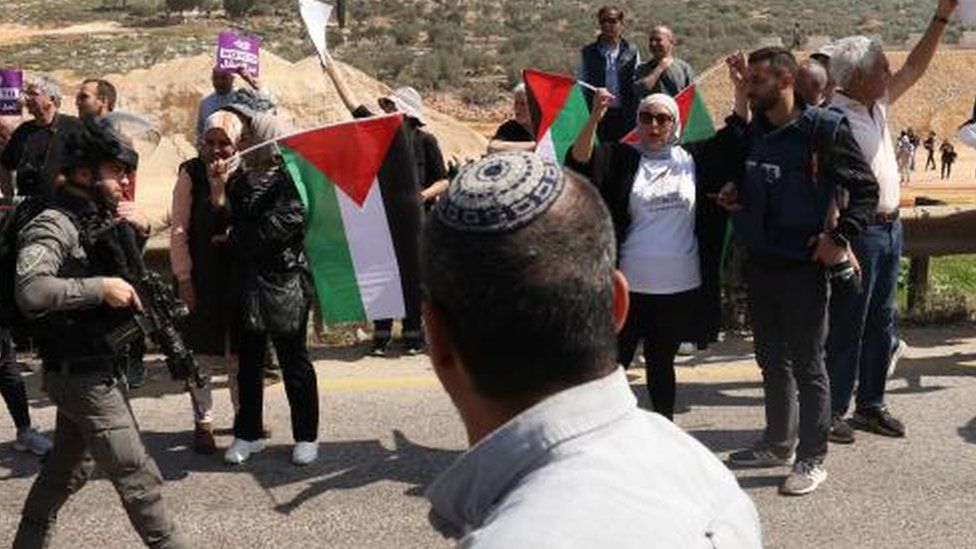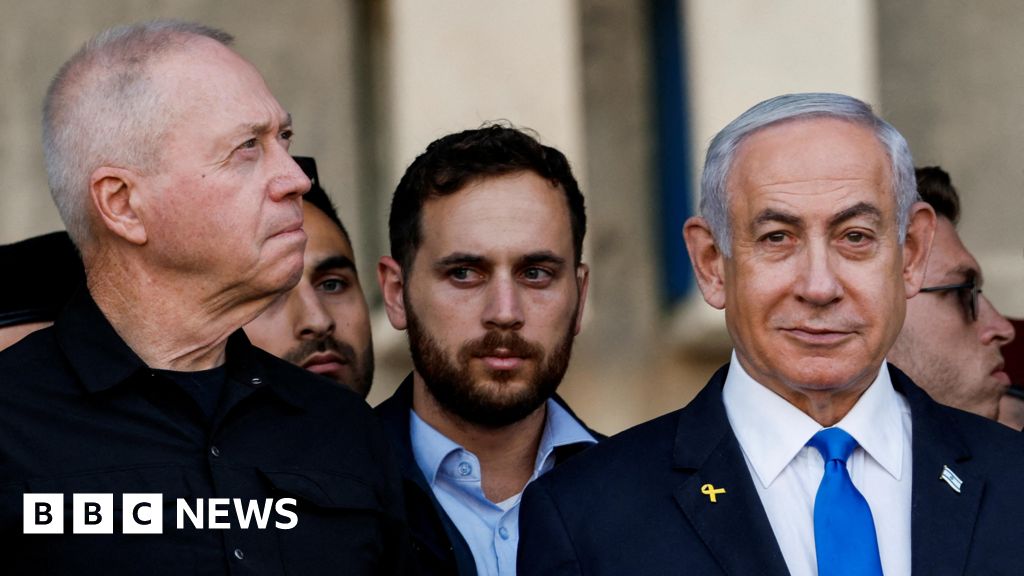ARTICLE AD BOX
 Image source, EPA-EFE
Image source, EPA-EFE
Hawara has become a flashpoint for Israeli-Palestinian violence
By Lucy Williamson
BBC News, Jerusalem
The family of a Palestinian man, killed during a riot by settlers in the occupied West Bank, say they were unable to report his death to police, and relied on Israeli media reports to trigger an investigation.
Sameh al-Aqtash was shot outside his home near Hawara in February, after a crowd of Israeli settlers and soldiers gathered at the perimeter fence of the nearby Palestinian village of Zaatara.
His brother, Rashdan, said the family had tried twice to report his death to the Israeli authorities in the days after the killing, but were turned away.
Israeli police opened an investigation after media reports highlighted the family's difficulty in reporting the death.
Rashdan al-Aqtash said the residents of Zaatara - all part of the al-Aqtash extended family - were unarmed when confronted by the crowd of settlers on 26 February.
"They started throwing stones, and we pelted them with stones as well while shouting 'Allah is Great'," he said.
"In situations like this, the army usually fire tear gas to disperse people, and then rubber bullets, and finally they fire into the air. This time, they started firing live ammunition directly into the people."
It took 40 minutes to get Sameh to hospital, he says, because roads were blocked. He was pronounced dead on arrival.
The family said they first tried to report his death to the military liaison office in Hawara, but that officers there had refused to receive them.
Sameh al-Aqtash was killed when settlers attacked Hawara after two Israelis were shot dead there
It is not clear who fired the bullet that killed Sameh. Incidents involving soldiers are referred to Israel's military command in the West Bank; incidents involving settlers are referred to the police, who are often based inside Israeli settlements.
After being turned away from the military liaison office, the family went with their lawyer to a police station in the Israeli settlement of Ariel.
"We waited an hour outside, but they refused to meet us," Rashdan told me. "They said there was a security problem and they needed to handle it first."
The family returned to the same police station the following day, but say they were again turned away.
Few indictments
Ziv Stahl, executive director of the Israeli human rights organisation, Yesh Din, says many Palestinians in the West Bank encounter problems reporting crimes to Israeli police.
"Police stations are located mostly inside settlements," she said.
"Palestinians are forbidden from entering Israeli settlements [without a permit], so they have to come with a police escort. Then they are faced with claims that there is no investigator, or no-one who speaks Arabic to take the complaint."
Sameh was known for helping Jews and Arabs alike, said his brother Rashdan
Police from Ariel did later contact the family, after Israeli media highlighted the situation.
A police spokesperson confirmed in a statement that media reports had prompted an investigation, including the collection of forensic and other evidence.
The BBC understands that police have no official record of other attempts to report the incident, and that Sameh's body was buried before the investigation was opened.
"We will continue to investigate this case thoroughly in order to reach the truth," the statement said.
"They listened to us," Rashdan told me, "but we are not hopeful they will do anything."
Ziv Stahl says 93% of complaints filed with Israeli police regarding settler violence or ideologically motivated crimes are closed without indictments.
"It says something about the quality of the investigations and resources that only 7% of complaints end with indictments," she told me.
According to the organisation's data, the rate for military indictments is even lower - less than 1%.
We asked the Israeli police about these figures, but they did not respond to our question.
Ms Stahl says Palestinian trust in the system has eroded to the point where, in more than a third of cases, families do not file a complaint at all.
Rashdan al-Aqtash told me the chances of police finding the person who shot his brother were extremely low.
"[Sameh] was known for helping everyone," Rashdan said. "He helped Jews. His children still can't believe that he's dead."
'What's done is done'
Violent confrontations and attacks between Palestinians and Israelis in the occupied West Bank have been rising for months.
The riots in Hawara - in which settlers torched houses, shops and vehicles - came hours after two brothers from a nearby settlement were killed by a Palestinian gunman on the main road passing through the town.
Since then, three British-Israeli women were killed when they were shot by suspected Palestinian gunmen as they drove through the Jordan Valley; an Italian tourist died after a car-ramming attack by an Israeli Arab in Tel Aviv; and a Palestinian teenager was shot dead during an Israeli raid near Jericho.
The division and mistrust between Israeli and Palestinian residents here is widening, as Rashdan's parting words made strikingly clear:
"There's no justice," he said. "His Jewish friend told us to file a case, but it won't bring Sameh back. [They] kill people and get away with it. For us, what's done is done."
Watch: West Bank town set alight after Israelis killed

 1 year ago
25
1 year ago
25








 English (US)
English (US)